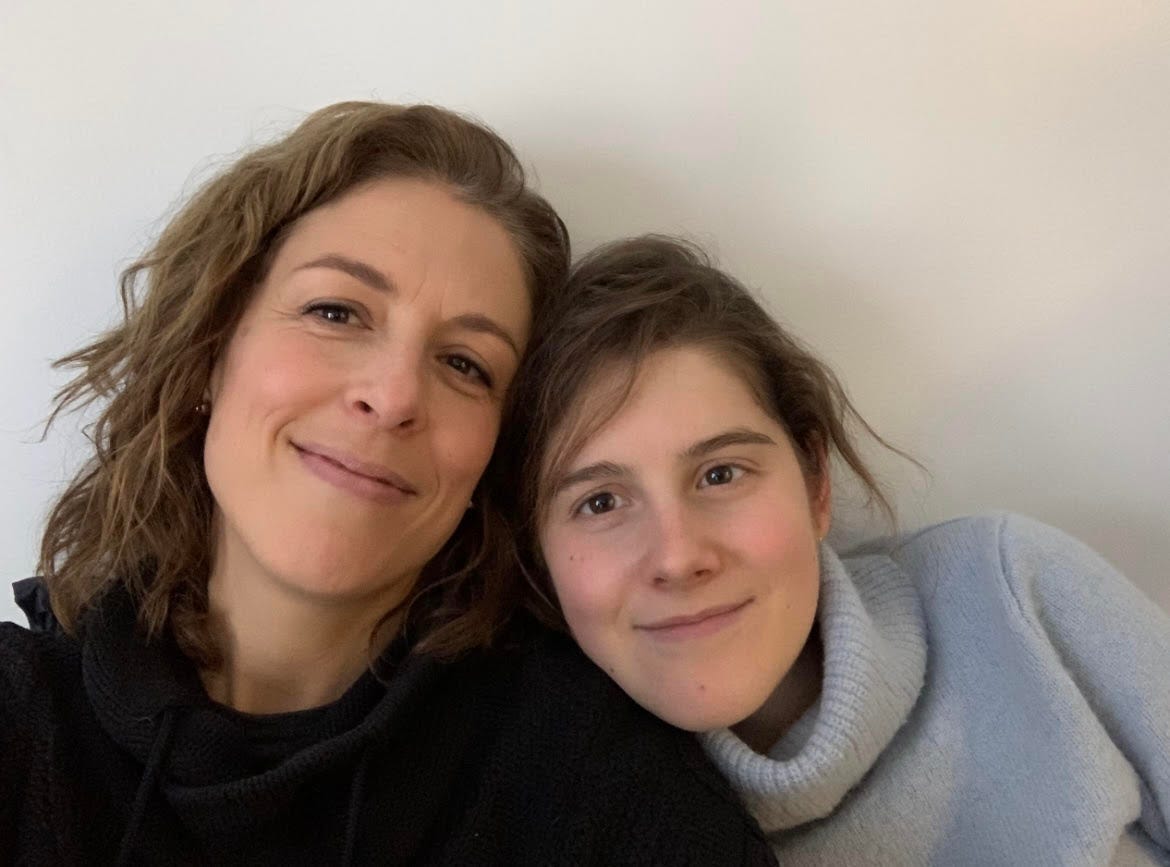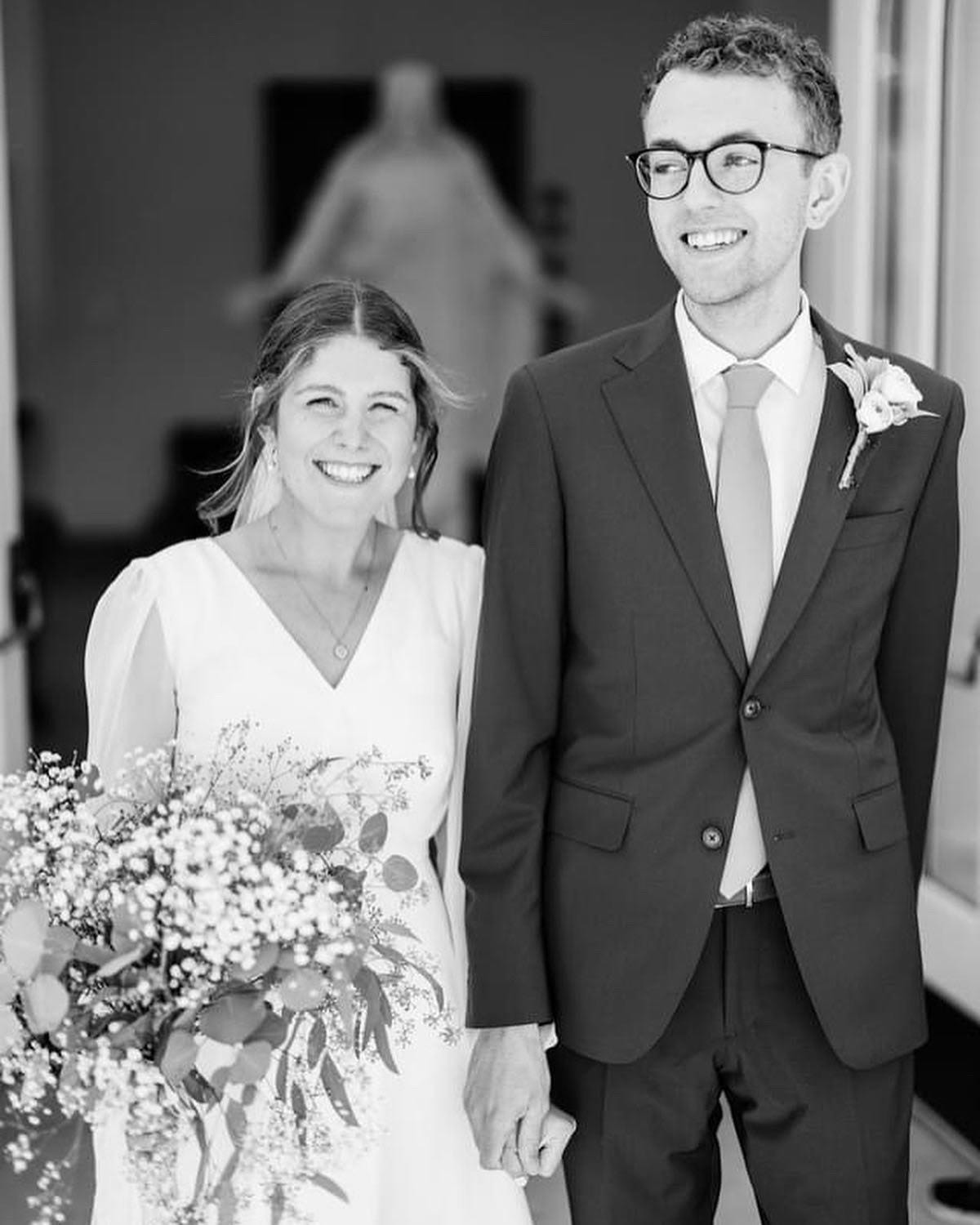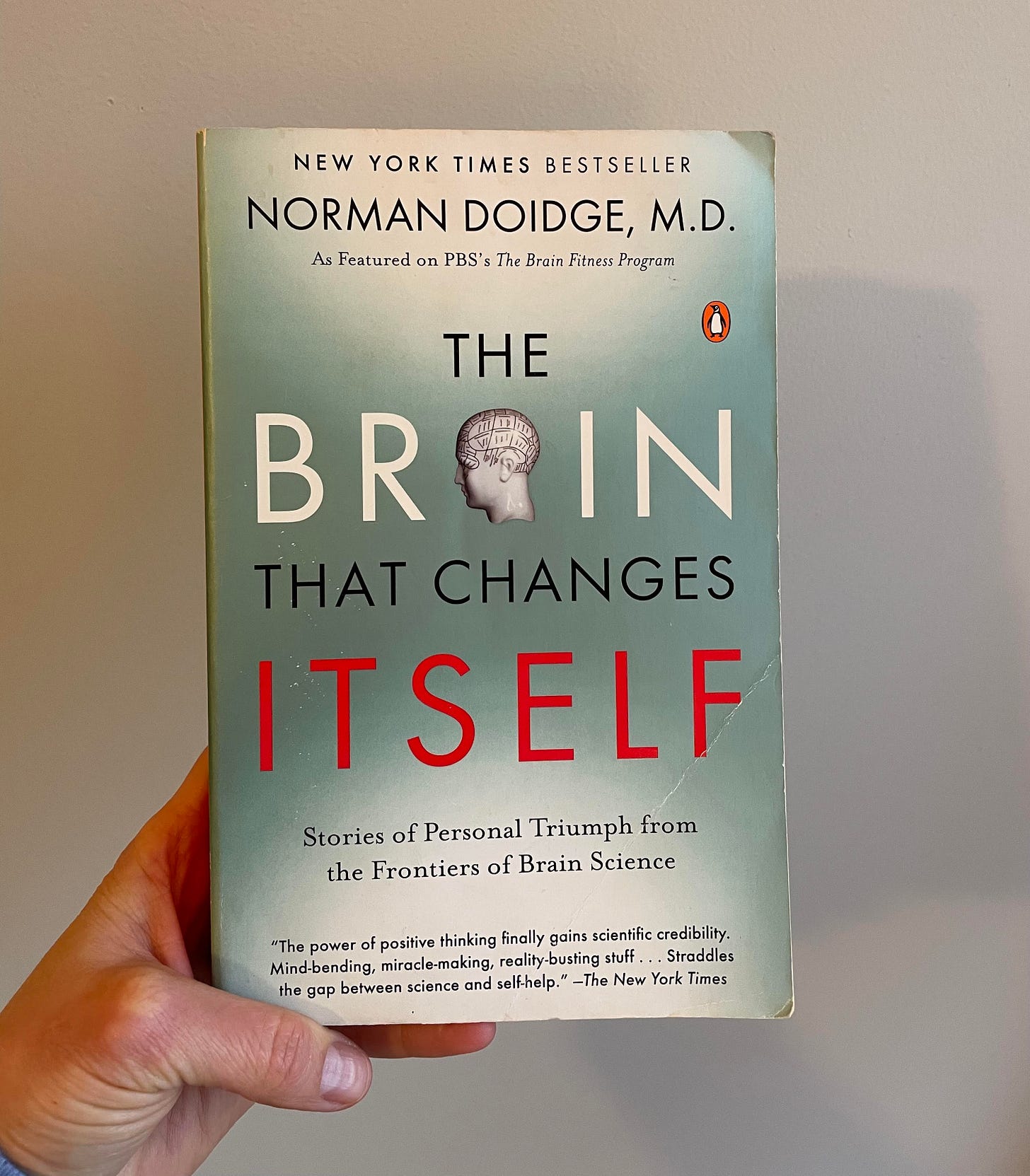When You Can't Fix It (by yourself)
navigating an eating disorder + some hope through it all
This one's also a love story.
Recently my daughter, Cope, was on the podcast Humans With Hans. Hans is a young adult attending BYU (where Cope goes to school) who interviews other young adults about relationships. Cope's interview was about her relationship with food. Specifically, an eating disorder.
The interview is now out in the world, and we want to share it with you.
My heart beats more quickly as I type this, as I enter the world of these are things we do not publicly speak of. I’m scared to hit Publish. I feel extremely protective. But Cope and I ultimately agree: these are things to speak of. Maybe it will help you or someone you love. I hope it does. That’s why I will hit Publish.
The pride I feel hearing Cope speak is so immense. Because it's so scary and it's so brave to speak. It’s also really hard. It triggered feelings. It prompted her to schedule an emergency appointment with an eating disorder therapist in Utah, and a lot of tears (from her AND me) as we revisited a very dark life chapter.
When she stepped off an airplane in 2019 I was so so scared. She was coming home early on medical leave while serving as a missionary in Taiwan. Her appearance had drastically changed. This fear was immediately met by a VERY fierce and powerful lioness-like feeling: I refused to be ashamed. Even then, I sensed there would be silver linings that would go far beyond our family.
Eating disorders are a form of mental illness. It's not truly about food, but a disordered way of thinking about food and control. Our brains can get weird, fast. (And our society rewards it in so many infuriating ways.) But I hope that as you listen to Cope’s story, you will feel hope. There is every reason to believe in recovery. The brain can get sick, and the brain can get better.
Because the brain is incredibly resilient and capable of change. With a lot of work - and it is work - neurons can rewire and form new thinking patterns; it's astoundingly awesome!
Cope references the statistics: eating disorders have the highest mortality rate of any mental illness. It's something to take very seriously, very quickly.
After she came home from Taiwan, we didn't know what to do beyond seeing a counselor, and it often takes weeks to months to get an appointment. At first I thought that we could deal with it ourselves, because, hey! I’m a mom and I fix things.
So I cooked Cope an egg for breakfast. I would feed and nourish her body and mind as we talked about eating all three macro nutrients (carbohydrates, fat, and protein). She would gain weight and be okay again.
Except she wouldn't eat the egg, couldn't make herself eat it, no matter what I said, no matter that they were locally sourced, no matter that she needed it because she was so so sick. I could not fix it. I could not fix my beautiful, suffering, sick girl.
Cope spent five weeks in an eating disorder facility. In my last newsletter I wrote about some brutal Thanksgivings. 2019 was one of those. Christmas was no picnic either.
The treatment facility was voluntary, but highly advised given her weight. Even so, she didn't want to go and was so angry with us. We drove the two hours to Cambridge, Massachusetts, past Harvard University, multiple times a week. I could barely believe this was our life. She would beg me to take her home. I would beg her to hang in there. We would part in tears. I would cry the rest of the way home. Cope would sob in her room. She would feel guilty about being a bother. I would feel guilty about everything I'd ever done as her mother. I would pray my guts out she would be alive the next morning. I don't write that lightly.
Dark, dark days.
That was years ago now. And many many counseling sessions later for her and us. Much rewiring of the brain - for her and us. And Cope is okay. We are okay. Cope is so good. She is healthy. There is a depth of gratitude.
We didn’t do it alone. We couldn’t. There were so many family, friends, and professionals helping us. And the mothers. God bless the mothers.
There is also the caution: like any illness, this isn't something that you just "get over." It takes time, sometimes even a lifetime, for the brain to rewire its thinking patterns.
We keep talking, we keep going to counseling, we keep checking in with our brain when it starts to tell us things that aren't true.
Silver linings? Absolutely. Perhaps I will write out all of the things I have learned along the way someday (food, healthy ways to talk about food, silence, genetics, support, etc), but for now, have a LISTEN HERE.
If you know of someone who could benefit, please share this link and episode. Eating disorders are fairly common, yet if they are spoken about at all, it’s usually in hushed voices, and with great reluctance. They THRIVE in secrecy and shame. But those are lies. There is no shame - except - what a shame it is to suffer alone, and when you don’t need to. I’ve seen what recovery looks like and it’s so so good.
As you take the steps toward becoming a more whole, healthy, and happy person, it will be scary. But remember that there is hope and there is healing because the brain and body have that ability. Because they are YOU. Dearly Beloved.
Amy ❣️
Book of the Week: The Brain That Changes Itself by Norman Doidge
One of the most influential books of my reading - and otherwise - life.
FASCINATING, hopeful, brainy stuff.
Much of it formed the science and explanation behind Vienna’s brain injury in The Unforgettable Guinevere St. Clair (who knew middle grade could get so nerdy 🤓 ).





Hi, Amy! Thanks for subscribing to my substack (I'll post something soon!). I've enjoyed all of your posts, but this one really hit home. I understand what it's like to have to leave a child at a treatment center. I've had to do it twice. I also suffered from an eating disorder as a teen, so I felt Cope's pain. I'm glad you're both doing better.
So proud of and happy for all of you.
What an ordeal. What courage . What a triumph.